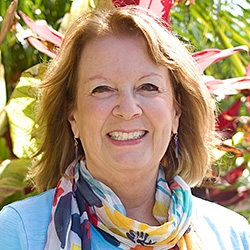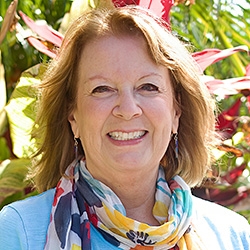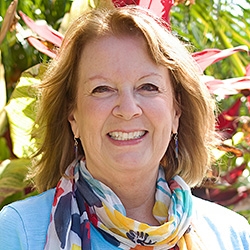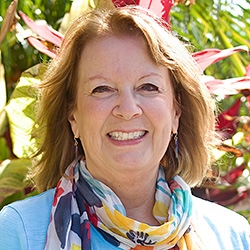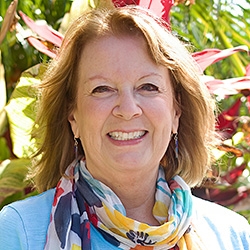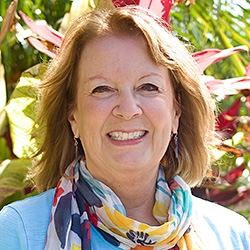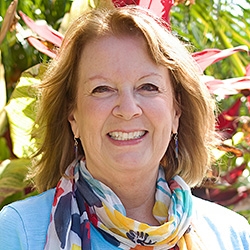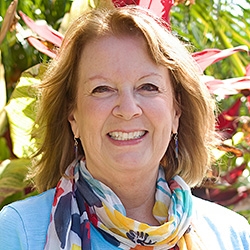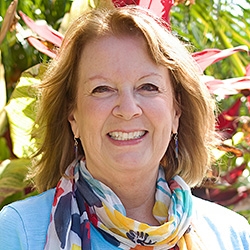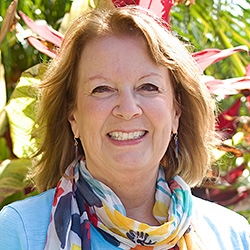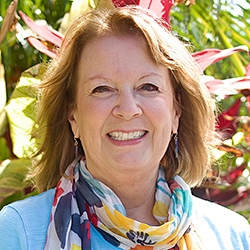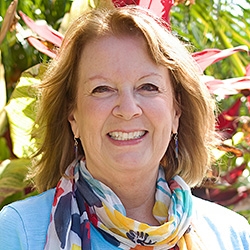

Search Results: choice
-
Setting boundaries takes being firmly grounded in self-respect and clear about what works for you. This means making conscious choices about how you relate to another or behave in a situation. Such clarity allows you to put your attention and energy where you want it to go. Thus we can have care and compassion without taking responsibility for others, nor feeling guilty when we say “no”. This takes awareness, skills, practice, healing and compassion.
-
- Celebrate and nurture your relationship to the Earth — and each other!
- Explore your connections to family, partner, work, nature, self and more
- Discover new ways to grow in community and work together to make this world a better place
- Engage and immerse yourself in NVC while making new friends!
-
Heal old messages of unworthiness and find choice in moments of reactivity through self-empathy.
-
Trainer tip: NVC consciousness recognizes interdependence. In this process each person is autonomous; everyone's needs matter; people have choice and responsibility for their actions; there's abundance, and a valuing of coming together. The dependence / independence paradigm assumes we either need someone else to be whole -- or we don’t need others at all. Commit to living autonomously. Notice where you struggle with this.
-
This chart helps translate words that imply blame into true feelings and unmet needs.
-
- Learn concrete tools for engaging with others as you embrace individual and collective liberation
- Find your own source of choice even in the face of challenges
- Release the constriction of scarcity
- Find an empowered option to respond to what is happening in our world
- Open the door to the possibility of thriving rather than merely surviving
-
- Connect the dots between NVC basic practices and the deeper "why" behind them
- Discover how NVC can support us in bringing tenderness to all of humanity
- Learn how to tie the NVC approach to liberation and vision
- Explore the many ways the tools of NVC support the path of liberation!
-
Learn how clarifying the needs behind ‘shoulds’ can ease conflict, grief, and family challenges.
-
Trainer Tip: Mary offers 3 foundational tips for making requests: positivity, specificity and doability.
-
Trainer Tip: Mary explains the NVC principle known as the "protective use of force."
-
Trainer Tip: Mary explains how Nonviolent Communication, a process that distinguishes needs from strategies is also itself, a strategy.
-
Trainer Tip: Clarifying our requests can make the difference between frustration and satisfaction, Mary shows you how.
-
Trainer Tip: Mary shares how staying present to our anger and finding the underlying feelings and needs can lead to deeper connection and more satisfying outcomes.
-
Trainer Tip: The question is not what other people think of you, but what you think of yourself. Who are you, really? Take a moment to consider what you value.
-
Trainer Tip: The exchange of resources, that is, exchanging money for an item or service, is enhanced and better appreciated when we are connected to its personal value rather than its cost.
-
Trainer Tip: Ready to start a fight because you're right? Consider another strategy.
-
Join CNVC Certified Trainers Jim and Jori Manske for this session that will help you minimize your reactivity and live in greater choice.
-
When Anita's sister reveals that the Ku Klux Klan broke into her home and dragged her out into a field towards a burning cross, Anita's commitment to nonviolence is challenged. Here, Miki highlights practices and lessons from her story of inner struggle -- including an insight about how, even in extreme polarization, our freedom and healing is wrapped up in others' freedom and healing.
-
Trainer Tip: People’s choice of words may be difficult to hear. In fact, we may feel downright aggravated by them. Whether we enjoy these statements or not, we can begin to recognize that behind each statement is a desire to meet needs, either by saying please or thank you. In this way, we are more likely to feel compassion because we have connected to their humanness. Listen for the please or thank you in your conversations today.
-
Trainer Tip: Commit to doing one thing right now that will bring you closer to meeting a need today. Do it today. Don’t put it off. This is your life.
Quick Links

Stay in Touch!
We value your privacy, won't share your email address and you can easily unsubscribe any time.



